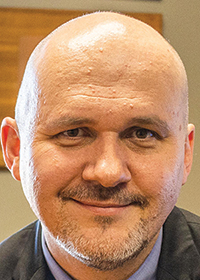Canoo and the perils of high-risk innovation
by April 11, 2023 8:55 am 1,613 views

The future looked pretty bright for electric vehicle (EV) maker Canoo last July when it announced its big deal with Walmart (4,500 delivery vehicles, with an option to increase the purchase amount to 10,000), right on the heels of a vehicle production agreement with NASA. It was great news for Arkansas, as the company also announced the relocation of its headquarters to Bentonville and plans to establish manufacturing facilities in Northwest Arkansas and neighboring Oklahoma.
Last month, the mood was much more sober when Canoo reported its 2022 financial results. Although the company claims to have secured $2.8 billion in orders for its delivery vehicles, Canoo has yet to sell a car since going public in December 2020 — despite promising in early November that it would begin production on Nov. 17.
Expansion plans in Northwest Arkansas have been shelved, the Oklahoma production facilities have yet to be developed, and the company is running out of money. To keep cash flowing, Canoo needs to sell shares at increasingly dilutive prices — which is problematic given that the company’s shares now trade around $0.60. Canoo has lost over 90% of its market value over the past two years and generated a cumulative operating loss of more than $1 billion.
Interestingly, many of Canoo’s competitors — Nikola, Lordstown Motors, Fisker, Hyliion, and Faraday Future — have the same history of substantial operating losses and minimal or non-existent sales years after going public. All of the above EV startups have one thing in common — they did not become public companies through the “traditional” initial public offering (IPO) process.

Instead, Canoo (and many EV companies) went public using “Special Purpose Acquisition Companies.” SPACs are blank-check public companies that raise capital and then find a private company to merge with. Because there are relatively fewer regulatory requirements for mergers, SPAC-sponsored IPOs make it possible to invest in young growth companies — often based on an idea rather than a proven product — that would otherwise have difficulty raising capital. The resulting public startups tend to be very risky. A recent financial study shows that SPAC IPOs underperform the market by 30% in their first year of trading — and the performance is even worse for companies with minimal revenues (such as Canoo).
Right now, the deck is stacked against companies like Canoo. High innovation intensity does indeed carry an increased risk of failure. But at the same time, innovation has been shown repeatedly to generate progress, prosperity, and a highly educated and skilled population.
Arkansas has not traditionally been characterized as an “innovation hub,” thanks to its past reliance on super-stable businesses like discount retail and food. But whether Canoo succeeds, our state’s “home-grown” innovation fortunes are changing. The University of Arkansas has become a catalyst for progress, supporting new technology startups in supply chain, healthcare or engineering. And the big players in Arkansas are changing, too. We can now hear Walmart CEO Doug McMillon talking about drone deliveries to automatically restock our refrigerators or Tyson Ventures developing new meatless alternatives.
Ultimately, innovation is critical to our state’s success. Just as every well-balanced personal investment portfolio should include some risky investments, every state/community should have plans to support some risky — but potentially highly profitable — innovation activities.
Editor’s note: Tomas Jandik is a finance professor and holder of the Dillard’s Chair in Corporate Finance at the University of Arkansas. The opinions expressed are those of the author.
